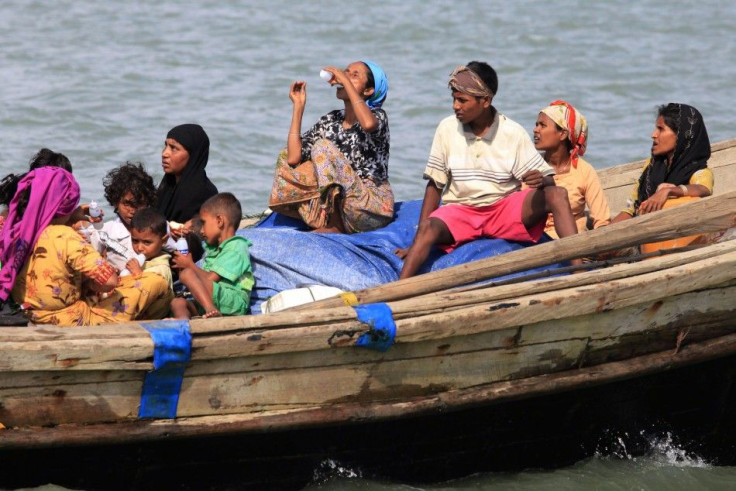Myanmar: Continued Violence In Rakhine State Highlights Sectarian Tensions, Human Rights Abuses

Despite the imposition of a state of emergency on Rakhine province, in the far west of Myanmar, unrest in the region has expanded, with up to as many as 25 people killed since Friday.
The violence has pitted the local Muslim minority against the dominant Buddhists -- a sectarian conflict whose roots go back centuries and now manifests itself in a spate of murders, rapes and the burning down of homes and entire villages.
Smoke is billowing from many directions, and we are scared, Ma Thein, a resident of the city of Sittwe, told the Associated Press.
The government should send in more security forces to protect both [Muslim and Buddhist] communities.
Human Rights Watch, the New York-based activist organization, warned that the Burmese government has taken “inadequate steps” to stop the sectarian violence in Rakhine.
“Deadly violence in [Rakhine] is spiraling out of control under the government’s watch,” said Elaine Pearson, deputy Asia director at HRW, in a statement. “Opening the area to independent international observers would put all sides on notice that they were being closely watched.”
Muslims, who form a 4 percent minority in Myanmar as a whole, are concentrated in Rakhine and are part of a community called the Rohingya. According to reports, many of these Muslims have sought to escape to neighboring Bangladesh by sea or have been relocated to other areas within Rakhine.
Bangladesh, fearing a sudden influx of thousands of unwanted refugees, has tightened security along its 190-mile border with Myanmar.
The United Nations has urged Bangladesh to provide safe haven for the Rohingya.
The Rohingya are a stateless community who have long been persecuted and abused by the Myanmar state and military. They have few if any civil rights and are widely regarded as “illegal immigrants.”
Meanwhile, the Myanmar government has sent in military forces into Rakhine to quell the disturbances. However, given the Burmese army’s notorious reputation for violence and human rights abuses, activists worry their presence would only deepen the crisis.
“For decades, the Rohingya have routinely suffered abuses by the Burmese army, including extrajudicial killings, forced labor, land confiscation and restricted freedom of movement,” said HRW .
“[Rakhine] people have also faced human rights violations by the army. Using the army to restore order risks arbitrary arrests, enforced disappearances and torture. Given the Burmese army’s brutal record of abuses ... putting the military in charge of law enforcement could make matters worse.”
Myanmar is in a sensitive position now -- having established a nominally civilian government in March 2010 led by President Thein Sein, the country has enacted a number of democratic reforms, which have led western and Asian nations to ease some of their sanctions.
The most dramatic development may have been the recent election of pro-democracy icon Aung San Suu Kyi into Burma's parliament.
However, Suu Kyi herself has warned that the military retains significant control in Myanmar -- and the unrest in Rakhine may provide the army with an excuse to exercise its brutality and domination.
Indeed, some observers suspect that the violence in Rakhine is being used (or perhaps fomented) by the Myanmar government to discredit Suu Kyi.
Bertil Lintner, an author and expert on Burma, told the Week: The violence is clearly well-orchestrated and not as spontaneous as we are being led to believe.”
Lintner added: “The [Burmese] government is very worried about the support commanded by Suu Kyi. It wants to force her into a position where she has to make a pro-Rohingya public statement that could damage her popularity among Burma's Buddhists, where anti-Muslim sentiment runs high. On the other hand, if she remains silent, she will disappoint those who support her firm stand on human rights.
© Copyright IBTimes 2024. All rights reserved.





















